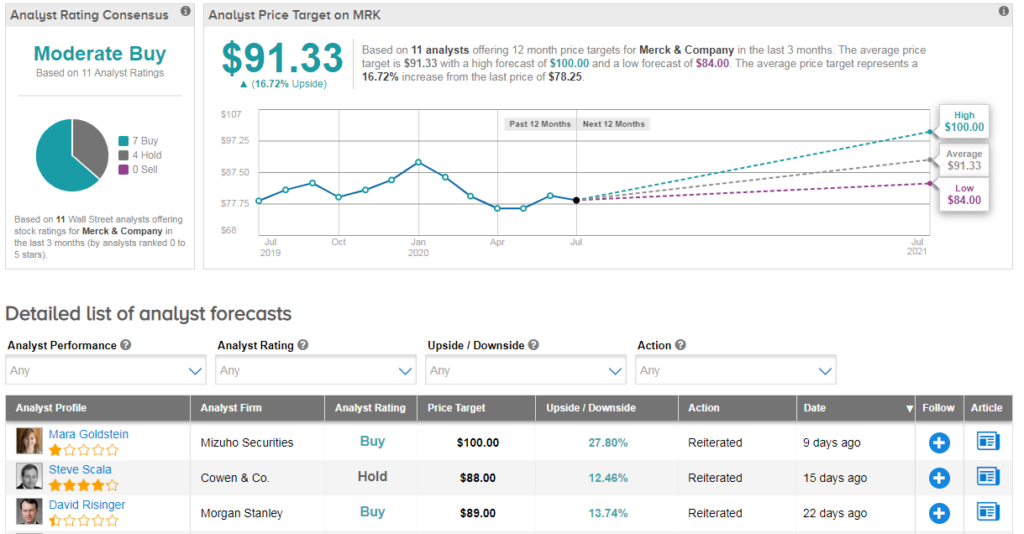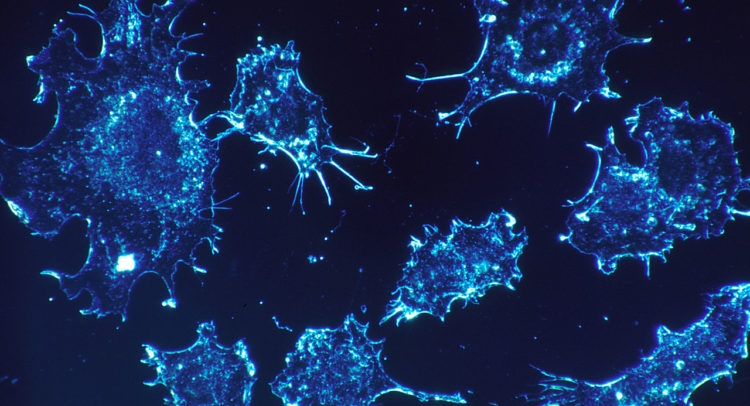Merck (MRK) and Novocure (NVCR) have entered into a clinical trial collaboration agreement to develop Tumor Treating Fields together with Merck’s anti-PD-1 therapy Keytruda (pembrolizumab) for treatment of non-small cell lung cancer (NSCLC).
Novocure’s Tumor Treating Fields use electric fields tuned to specific frequencies to disrupt cell division, inhibiting tumor growth and causing cancer cells to die. It does not stimulate or heat tissue and causes minimal damage to healthy cells.
The two companies plan to conduct a phase 2 pilot study of Tumor Treating Fields concomitant with Keytruda for first-line treatment of intrathoracic advanced or metastatic, PD-L1 positive NSCLC. The study is designed to enroll approximately 66 patients in the United States and is expected to begin in the second half of 2020.
Objective response rate (ORR) is the primary endpoint of the study. Secondary endpoints include overall survival, progression free survival (PFS), PFS at six months, one-year survival rate, duration of response, disease control rate at 18 weeks and safety.
“We are very pleased to collaborate with MSD, a global leader in oncology, in this important combination study as we strive to extend survival in some of the most aggressive forms of cancer through the development and commercialization of Tumor Treating Fields,” said William Doyle, Novocure’s Executive Chairman.
“Multiple preclinical studies suggest that the use of Tumor Treating Fields together with anti-PD-1 therapy can potentially augment the immune response resulting in improved tumor control” he added.
Non-small cell lung cancer (NSCLC) is the most common type of lung cancer, accounting for about 85% of all cases. The five-year survival rate for patients diagnosed in the US with NSCLC is approximately 24%.
Tumor Treating Fields is approved in certain countries for the treatment of adults with glioblastoma and in the U.S. for mesothelioma, two of the most difficult cancer types to treat. The therapy shows promise in multiple solid tumor types – including some of the most aggressive forms of cancer.
Shares in Merck are trading down 14% year-to-date, while Novocure has plunged over 30%. Analysts have a cautiously optimistic outlook on Merck with a Moderate Buy consensus and $91 average analyst price target (17% upside potential). (See Merck stock analysis on TipRanks).
“Our investment thesis on Merck is that Keytruda will remain the key growth driver for the business over the next several years, with other declining business segments continuing to throw off steady cash with which it can do strategic early-stage deals to augment its pipeline and diversify the business longer term” comments RBC Capital’s Randall Stanicky. He has a hold rating on the stock and $84 price target.

Related News:
Boston Scientific Mulls Billion-Dollar Snake Venom Sale- Report
Becton, Dickinson Score Fed Contract For Covid-19 Rapid Test Systems
Akebia Initiates Vadadustat Study In Covid-19 Patients
















